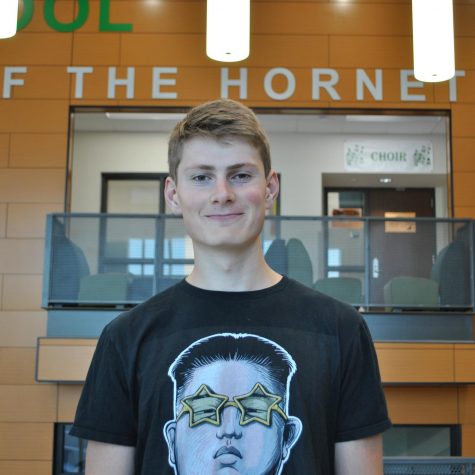Egger’s book of the month: Never Eat Alone
April 16, 2019
The word “networking” can have somewhat negative connotations. Many individuals may view networking as an activity reserved for power-hungry businesspeople. When I began reading Never Eat Alone, I had some qualms about the idea of attempting to establish countless seemingly unauthentic relationships with random people; however, as I continued to read, I realized that Ferrazzi’s idea of a network is simply just a group of people who care for each other.
Ferrazzi is a businessman with an undergraduate degree from Yale and an MBA from Harvard. This book instructs readers on how to connect with their peers and create widespread, intertwined relationships among them.
The principal insight that I took away from Never Eat Alone is that networks are essential in every aspect of life. It doesn’t matter whether one is hoping to be more successful at work or in “play;” relationships are necessary for humans who want to not only create a network but also find happiness. Ferrazzi finds that through networking, his “work life” and “play life” are actually a single entity. He writes, “Dividing my life between professional and personal spheres no longer made sense. I realized what made you successful in both worlds were other people and the way you related to them.”
The more of Never Eat Alone that I read, the more I realized that networking is something that everyone should do because it helps the individual, but it also allows one to show compassion and to do good deeds. An instance that demonstrates the author’s genuine kindness is when he calls an acquaintance to sing him happy birthday–Ferrazzi does this for everyone in his contacts–only to be answered by the sound of his friend crying. His friend tells Ferrazzi that he is the only person to have wished him a happy birthday. This anecdote truly embodies what it means to be a connector. It’s not about advancing one’s personal agenda. It’s about maximizing our ability to do good by reaching out to as many people as possible with genuine kindness and benevolence.
As high school students, we are all too familiar with sleep deprivation. Up late studying or just procrastinating homework, the few hours we get every night are precious, but very few people understand the effects of insomnia on sleep cycles–specifically dreams.
Sigmund Freud, a famous 19th-century Austrian psychologist, pioneered the study of dreams and psychoanalysis–a branch of psychology that aims to release repressed emotions and experiences to make memories of the unconscious conscious. To this day, there is still a lot that we do not know about our dreams. However, there are many studies that try to explain this seemingly simple yet complex mystery of the mind.
Dreams are the stories and images our minds create while we sleep. When someone is sleep deprived, they typically have greater brain activity while they are sleeping; dreaming is increased and generally become more vivid.
Dreaming occurs primarily during the rapid eye movement (REM) stage of our sleep cycles– quick, sharp movements of the eyes under closed eyelids. In REM, our brain activity uncannily reflects that of a lucid state. However, our bodies lie still in a paralyzed state, keeping us from acting out the stories we dream.
Sleep is an escape and a way that students can relax and let go of their day-to-day worries, right? Wrong. Studies have shown the stressful situations we encounter in our daily lives infiltrate our dreams. According to author Netta Weinstein, a social and environmental psychologist at Cardiff University in Wales, our minds are wired to hold onto intense social experiences. If we are facing a strenuous hardship, it is typical for a similar situation to play itself out in our dreams.
Negative experiences in our lives impact our ability to get a good night’s sleep. Stress, builds worry, which leads to dreams that reflect the anxiety response in the brain. The response, however, is interchangeable. Researchers have found that anxiety not only disrupts sleep, but bad sleep patterns also cause anxiety.
Overall, vivid dreams and deep sleep may serve as warnings of more serious sleep issues than previously thought. Students should be more aware of their sleep patterns, and make sure to balance school and rest to get the proper amount of effective sleep.


